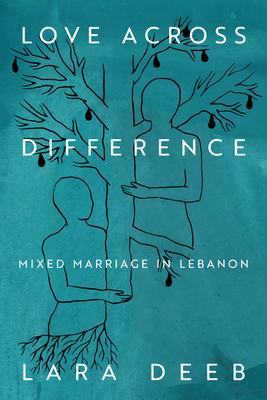Lebanon may be the most complicated place in the world to be a "mixed" couple. It has no civil marriage law, fifteen personal status laws, and a political system built on sectarianism. Still, Lebanon has the most interreligious marriages per capita in the Middle East. What constitutes a mixed marriage is in flux as social norms shift, and reactions to mixed marriage reveal underlying social categories of discrimination. Through stories of Lebanese couples, Love Across Difference challenges readers to rethink categories of difference and imagine possibilities for social change.
Drawing on two decades of interviews and research, Lara Deeb shows how mixed couples in Lebanon confront patriarchy, social difference, and sectarianism. In the drama that ensues as women and young men make their own marital choices, they push gender boundaries and reveal the ultimately empty nature of sect as a category of social difference. Love won't end sectarianism, but it can contribute to reducing sect's social power. Through the example of Lebanon, we can learn about our own social worlds, about the assumptions we make around social difference, and about how people react when forced to change their ideas of who can be made kin through marriage.
